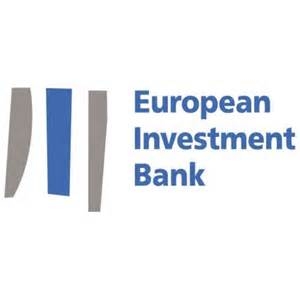European Union: European Investment Bank grants Tunisia loan for energy production
2014/03/08

The European Investment Bank (EIB) on Tuesday granted Tunisia a loan, worth 150 million Euros, for the Tunisian Oil Company (ETAP) to half explore natural gas and petroleum deposits in the southern part of the country, Mohamed Akrout, ETAP's CEO, said.
The loan is for the realization of an energy project, costing between US$ 800 million and US$ 850 million, and driven in equal shares by ETAP and the Austrian company, OMV, he said.
The project, which will be operational in 2016, will create about 1,500 jobs in the construction phase and 100 jobs during the operational phase.
The production capacity of the project is estimated at 2.7 million m3 of gas and 7,000 barrels of oil per day.
The Vice-President of EIB, Philippe de Fontaine Vive, said that the loan would help improve the operating conditions at these fields and enable the production of energy in harsh environmental conditions.
According to him, the project will enable Tunisia to reduce the importation of energy resources which will positively improve the country’s balance of payments.
The Minister of Industry, Energy and Mines, Kamel Ben Naceur, stressed the importance of the project that will contribute to energy security which is seen as a major vector for economic increase.
He said the grant of credit on favorable terms demonstrates the confidence of the EIB in the new Tunisia.
- Related Articles
-
Spain enters race to host EU bank regulator
2016/07/04 Spain will compete with other nations in the European Union to host the headquarters of the EU's London-based bank regulator following Britain's decision to leave the bloc, its deputy prime minister said on Friday. The race to host the European Banking Authority is led by Paris and Frankfurt, the major EU financial centres, but no decision has been reached and other nations have as well put themselves forward in the scramble to give London's agencies a new home. -
EU meets without Britain for first time since Brexit vote
2016/07/04 Europe’s leaders meet today without Britain for the initial time following its shock decision to leave the EU, trying to pick up the pieces and prevent further disintegration. The 27 remaining members of the bloc agreed to give Britain some breathing space yesterday, accepting that it needs time to absorb the shock of the Brexit vote before triggering Article 50 that will begin the formal divorce proceedings. German Chancellor Angela Merkel warned British Prime Minister David Cameron could not “cherry-pick” the terms of the exit negotiations, reflecting wider concerns that Britain’s departure could spark a domino result of other states wanting to leave the EU. -
Morocco: Reflections on Europe
2016/06/28 With growing economic prosperity and continuing political stability, Morocco continues to attract foreign investors. With an increasing focus on encouraging international commercial dispute resolution in Casablanca, the country is seeking to present itself as a business hub, as law firms push to open up in the region. Natasha Mellersh reports. For Morocco, its proximity to Europe has been significant throughout its history. The late King Hassan of Morocco described Morocco as “a tree whose roots reach deep into the African soil and whose leaves breathe in the winds of Europe”. -
Trump says Britain should leave EU
2016/06/20 Donald Trump told Britons on Sunday he supported Brexit, repeating just days before the vote on June 23 that he thinks the UK would be better off outside the European Union. As the campaign to decide Britain’s EU membership restarted next a three-day hiatus following the killing of lawmaker Jo Cox, Trump, the presumptive Republican US presidential candidate, said in a newspaper interview he was backing an “out” vote. -
Two Remarks on the Turkey-EU Deal on the Migrant Crisis
2016/06/11 “The EU and Turkey have reached a transaction on the migrant crisis, which will see migrants returned to Turkey in exchange for aid and political concessions.” There are two practically significant points of this transaction: The European Union (EU) will no longer need to transaction with new and uncontrolled immigrants. In exchange for an “acceptable” migrant for the EU, Turkey will take back all the migrants, regardless of the nationality. The EU will pay 3 billion euros to Turkey for this, which has long-term and short-term benefits.
-
- European Union News
-
- EUROPEAN UNION: Spain enters race to host EU bank regulator
- EUROPEAN UNION: EU meets without Britain for first time since Brexit vote
- CASABLANCA: For Morocco, its proximity to Europe has been significant throughout its history.
- UNITED STATES: Trump says Britain should leave EU
- EUROPEAN UNION: Two Remarks on the Turkey-EU Deal on the Migrant Crisis
- EUROPEAN UNION: Forget About Brexit, Institutional Creep Goes Beyond the EU
- Trending Articles
-
- AUSTRALIA: Australia election: Over 15 million voters likely to exercise their franchise
- CHINA: Forty-six Chinese-owned companies registered in Guinea-Bissau
- SOUTH AFRICA: South Africa’s Biggest Labor Group to Balance Pay With Job Security
- ISRAEL: Israeli PM to embark on historic Africa visit boosting diplomatic, economic ties
- MALAWI: This $6 a month solar energy plan could power a million homes in Africa by 2017
- NIGERIA: Lagos hosts 2016 Africa fashion week Nigeria




.gif?1356023993)





